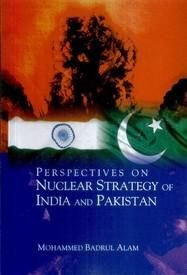Apart from the nuclear strategies of the two erstwhile superpowers during the acme of the Cold War, the only other nuclear strategy that seems to have attracted the attention of the analysts of the security and strategic affairs may arguably be the nuclear strategy of India and Pakistan. Naturally, therefore, there exists a plethora of literature on the subject and the book under review is a welcome addition to the same. Yet, amongst the illuminating studies on the nuclear strategy of the two South Asian rivals, the unique selling point of the book is to ‘analyse, examine, evaluate and critique contemporary works on South Asian security order encompassing aspects of nuclear strategies of India and Pakistan, impact of nuclear South Asia in the regional and technological context as well as the viability of various confidence-building measures both in the conventional and non-conventional areas’ (p. 7). In other words, the book seeks to provide critical perspectives on the nuclear strategies of India and Pakistan through a reinterpretation of the empirical evidences and theoretical inputs outlined in the valuable tracts and pieces on the subject. In doing so, the contributors of the volume have shown methodological refinements in arguing their case through the analytical scrutiny of the available literature, rigorous application of their intellectual insights and critical speculation on probable scenarios ‘under which a stable (and, unstable) security regime may evolve in South Asia in the not so distant future’ (p. 7).

Re-interpreting Evidences and Inputs
Rajendra Kumar Pandey
PERSPECTIVES ON NUCLEAR STRATEGY OF INDIA AND PAKISTAN by Mohammed Badrul Alam Kalpaz Publications, 2013, 319 pp., 950
June 2013, volume 37, No 6
